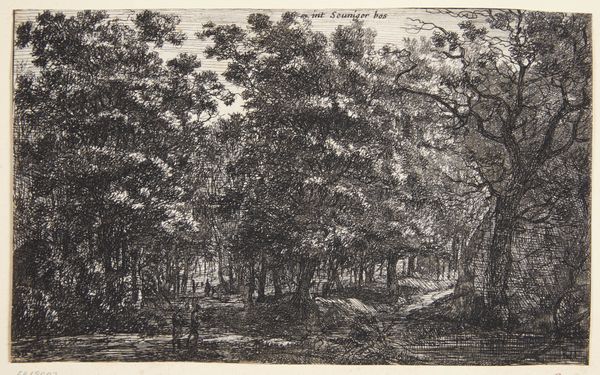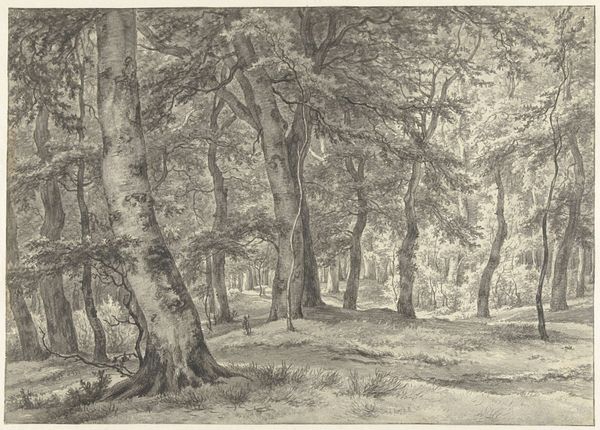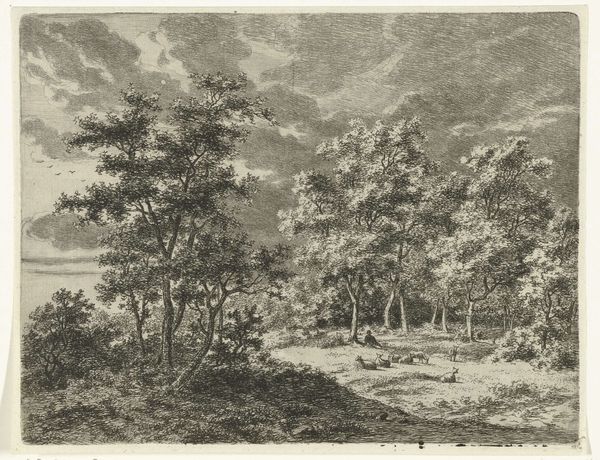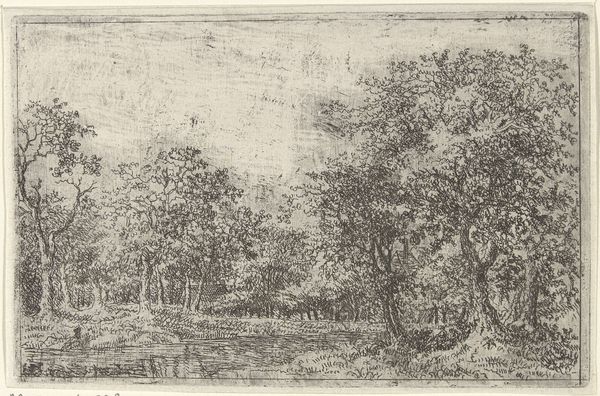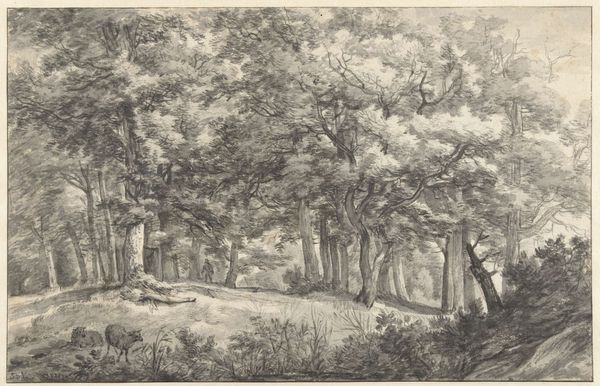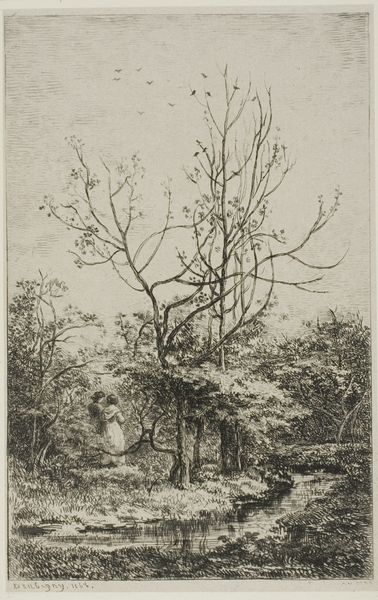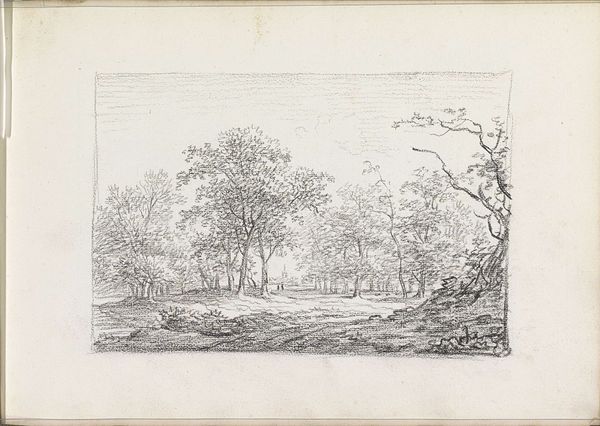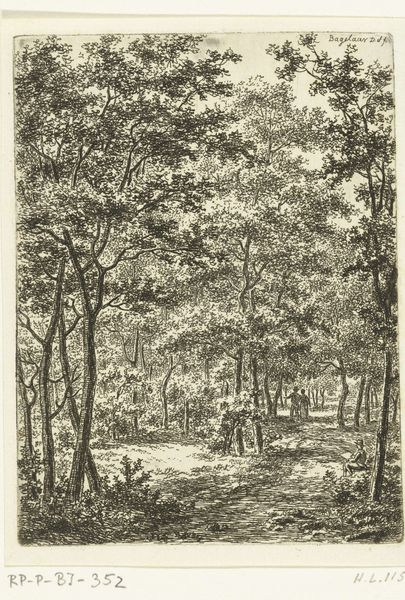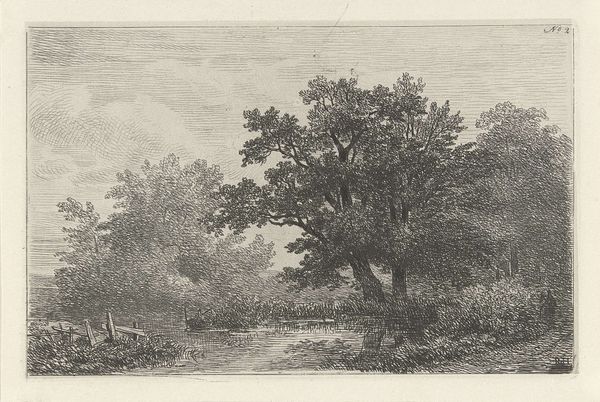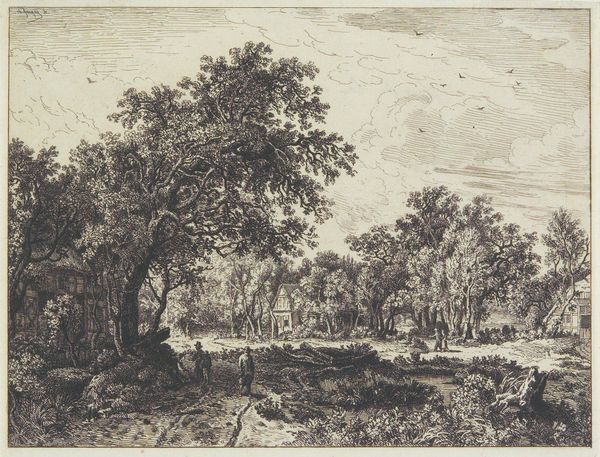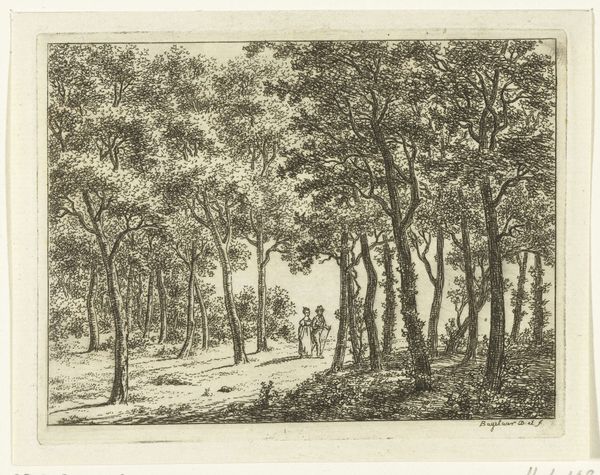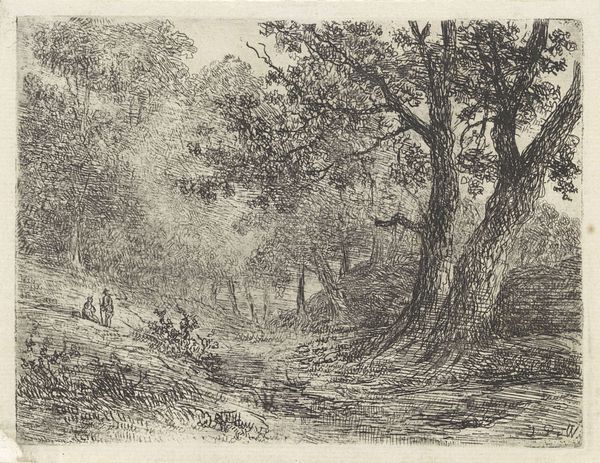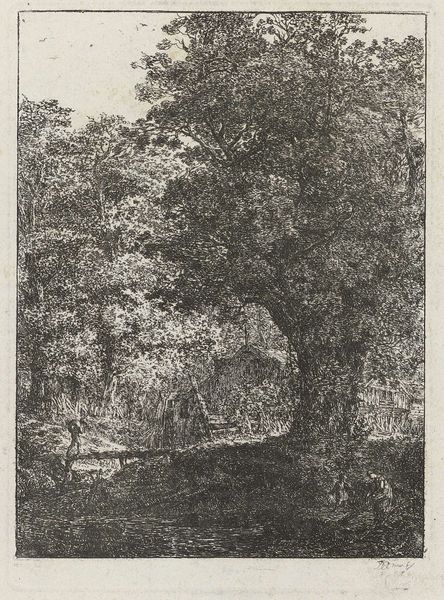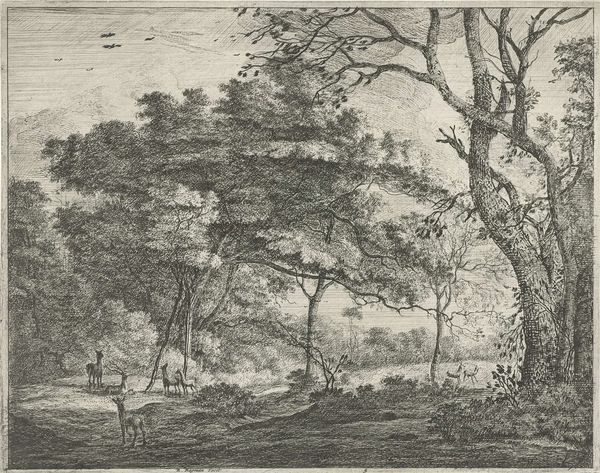
print, etching
#
dutch-golden-age
# print
#
etching
#
landscape
#
forest
Dimensions: height 132 mm, width 211 mm
Copyright: Rijks Museum: Open Domain
Roelant Roghman created this etching, "Seuniger bos," likely in the mid-17th century in the Netherlands. This image, now held at the Rijksmuseum, offers us a glimpse into the cultural significance of landscapes during the Dutch Golden Age. During this time, the Netherlands experienced a surge in economic prosperity and artistic innovation. The rise of a wealthy merchant class created a demand for art that reflected their values and surroundings. Landscapes, like this forest scene, became popular as symbols of national pride and connection to the land. Roghman's choice of a forest interior might be seen as a commentary on the relationship between humans and nature. Was he interested in exploring the social norms of conservation? Art historians can delve into period documents, travelogues, and ecological studies to uncover deeper meanings within this seemingly simple image. By understanding the social and institutional context, we can better appreciate the complex layers of meaning embedded in Roghman's work.
Comments
No comments
Be the first to comment and join the conversation on the ultimate creative platform.
